|
EU
Leonardo da Vinci Programme
|
 |
|
 n
1997, the research New competencies
for sustainable tourism in protected areas was carried
out; it was financed by the European Union in the framework of the
"Leonardo da Vinci Program".
The objective of this program is to help and complete the actions
aimed at improving the quality of job training
policies, in order to identify new learning methodologies.
Four national teams (Italy,
France, Germany and Great Britain) took part in the research. Its
designing and central scientific coordination were guaranteed by
the University of Rome "La Sapienza", Sociology Department, Chair
of Environmental Sociology. At the basis of the research there are
the following expectations: n
1997, the research New competencies
for sustainable tourism in protected areas was carried
out; it was financed by the European Union in the framework of the
"Leonardo da Vinci Program".
The objective of this program is to help and complete the actions
aimed at improving the quality of job training
policies, in order to identify new learning methodologies.
Four national teams (Italy,
France, Germany and Great Britain) took part in the research. Its
designing and central scientific coordination were guaranteed by
the University of Rome "La Sapienza", Sociology Department, Chair
of Environmental Sociology. At the basis of the research there are
the following expectations:
-
Tourism will increase more and more its feature as a mass phenomenon
at a world-wide socio-economical system level;
-
In the framework of tourist resources, a growing success of environmental
tourist resources will take place;
-
The various types of protected areas will play a more and more
central role in the system of naturalistic-tourist offer.
A problem of intelligent management of tourist flows in the protected
areas has started for some time; this problem need the design and
implementation of adequate actions to consider tourist activities
as socio-economically desirable events and, simultaneously,
as actions characterized by no or low environmental impacts. This
last requisite needs a strong professionalization
process of all the operators working inside and around
the protected areas.
|
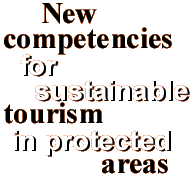


|
|

This desirable prospect was the basis for the identification of
the following cognitive objectives:
-
Highlight the professional functions that, in the context of the
European protected areas, may guarantee both the economical and
social development and a low environmental impact of tourist and
natural resources;
-
Describe the specific competencies of these professional functions
that are asked by the society to carry out peculiar activities
such as the above-mentioned ones.
-
A critical identification of the training needs coming out from
the definition of the above-mentioned professional functions.
-
Give, in this way, a knowledge basis (it could be defined as a
pre-project basis) for the training project.
|
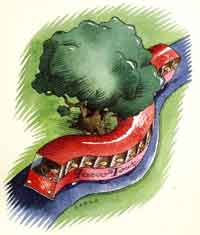 |
|

The results of the various interviews carried out in Italy and in
Europe both by experts of tourism in the protected areas and by
visitors of these areas indicated that the park
directors, environmental education directors and rangers/
guides are the people with the largest responsibilities
for a correct tourist fruition. The processes needed to complete
the training of these professionals in a "tourist way" were defined.
From the professional profiles come out during the research, it
appears that training is not only based on some specific professional
competencies, but it also has to consider
psychological and sociological
competencies to allow the development, for instance,
of communication abilities and
the capability to work in group.
Moreover, the research allowed to highlight other professional functions
already working in the European park areas, such as local development
agents, marketing experts of the protected area, environmental designers
and managers of tourist impacts (traffic, transportation, etc) that
may give a very valuable contribution to develop a kind of tourism
with a low impact in our protected areas.
|
Aspromonte
N.P.: trekking
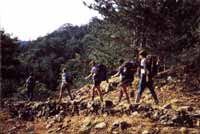
Gennargentu
N.P.:
shepard's cabin
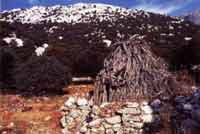
|
|

-
University of Rome "La Sapienza", Sociology Department (Italy);
-
Eures (Germany);
-
Uncpie (France);
-
Cranfield University (United Kindom).
|
Cilento
N.P.: Punta Tresino:
ruins of a colonic house
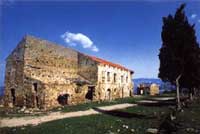
|
| EU
Leonardo da Vinci Programme |
  |
|
|







